
Similar Posts
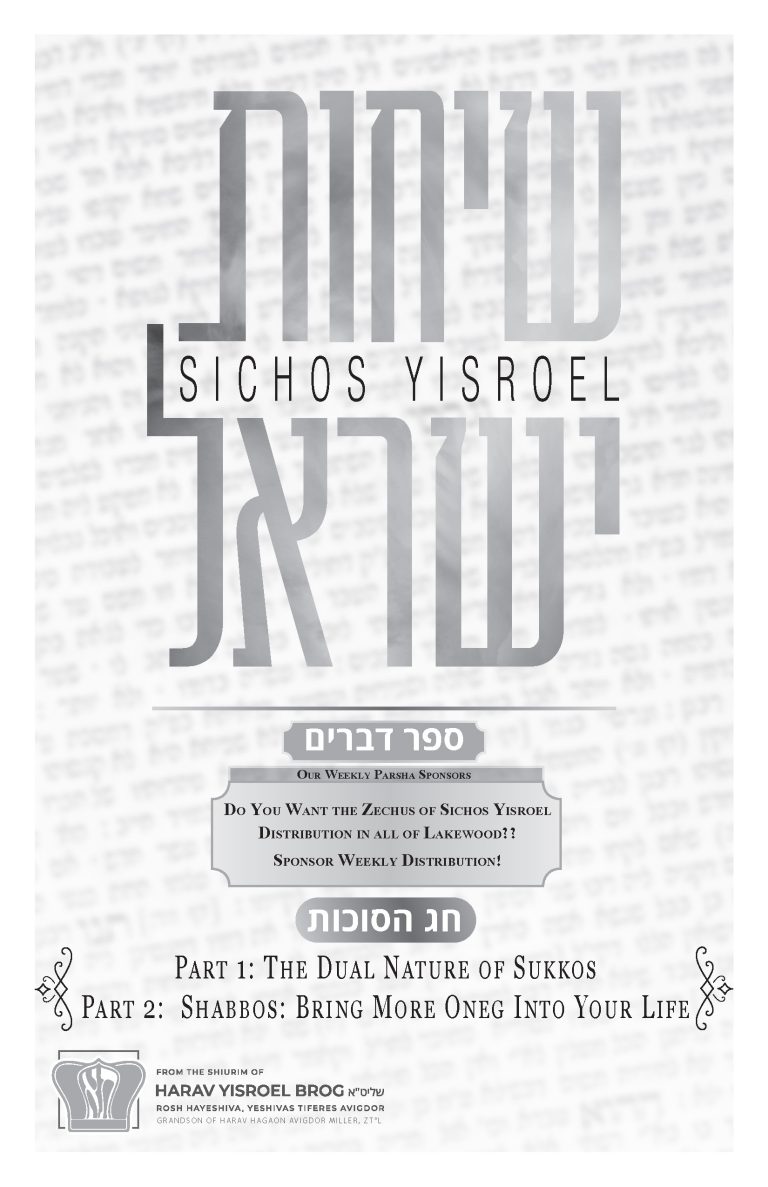
Sukkos 5785: The Dual Nature of Sukkos
Let us take a look at the end of Parshas Emor where the Torah discusses the Yom Tov of Sukkos. The pasuk says: On the 15th day of this 7th month, it is Chag Hasukkos Lahem. A few pesukim later it says: However, on the 15th day of the 7th month, when you gather in your harvest, you should celebrate a chag hashem shivas yamim. The obvious question is why does the Torah repeat these dates twice?
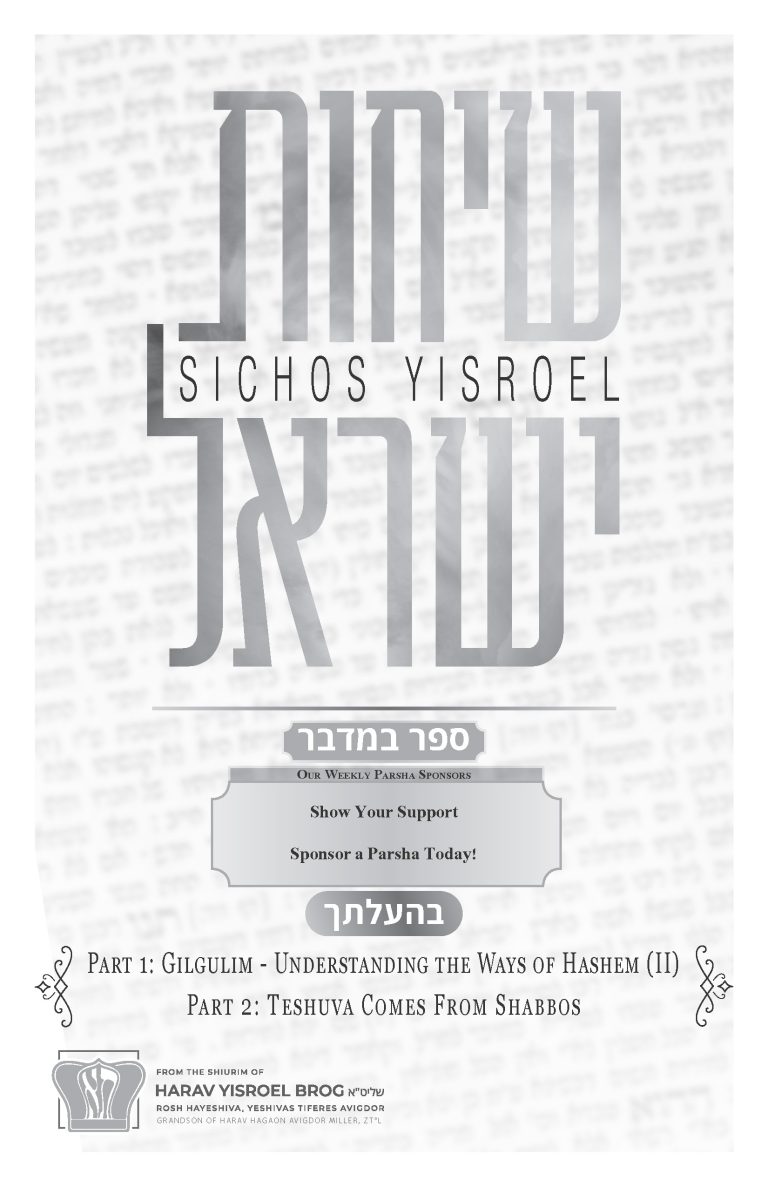
Beha’aloscha 5784: Understanding the Ways of Hashem (II)
The Ramchal writes, in Derech Hashem, about the concept of gilgulei neshamos, how a person could come back in different forms. As a matter of fact, one person can even have a number of neshamos. There are many people who don’t understand what motivates them and where they get their koach from. The gemara tells us, for example, that Rabbi Yochanan said: “I come from the offspring of Yosef.”
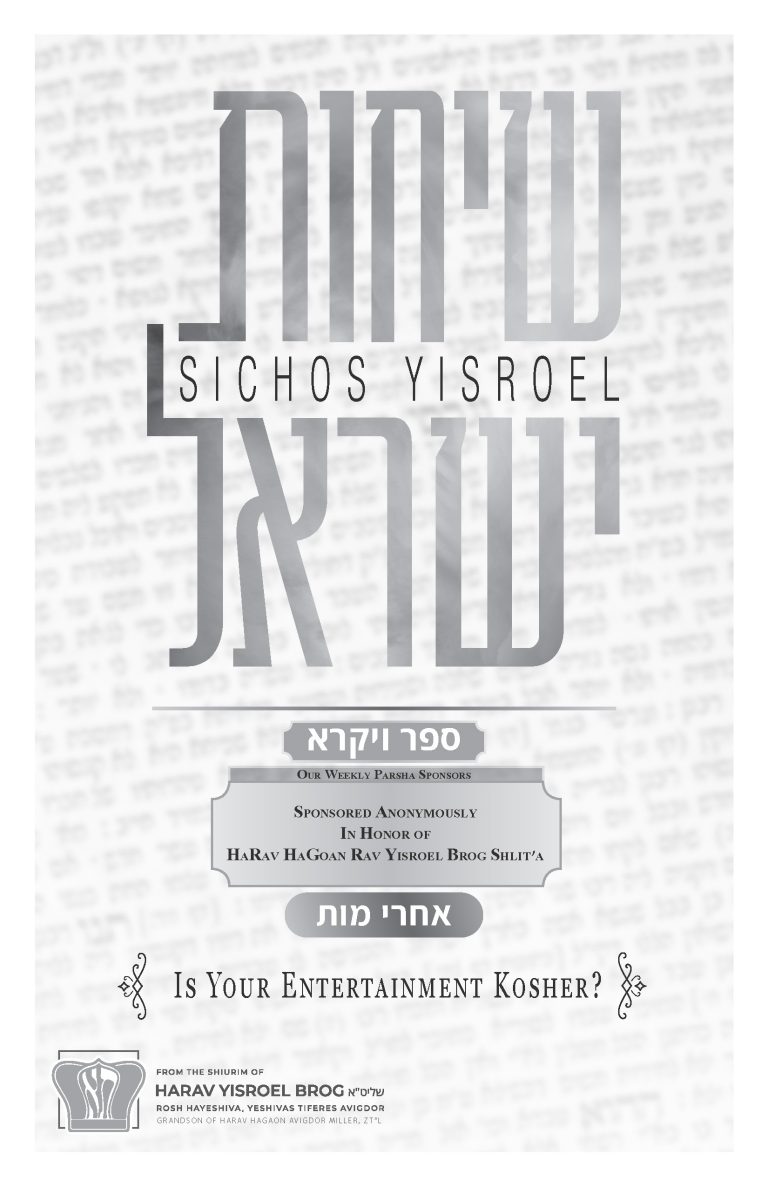
Acharei Mos 5784: Is Your Entertainment Kosher?
Today’s subject, to some people, is going to be a sensitive one. Most subjects that are sensitive to people are usually subjects in which people are challenged by the topic. For example, if we’ll speak about the importance of giving tzedakah and you’re a person who is not into tzedakah, and tzedakah is not your strong point, that’s going to be a sensitive subject for you.
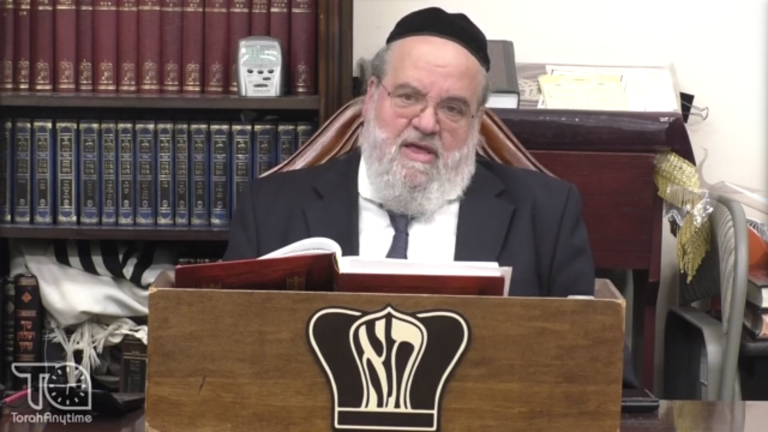
Our Reaction to the Tragic Events
Ais tzora hi l’Yaakov. Although the zman did not begin yet, the tzora, the milchama in Eretz Yisrael is the reason why we’re gathering for this short shiur. Many requests for a shiur were made, so we are hoping to share some words of chizuk and understanding with the olam. Hopefully this tzara should pass…
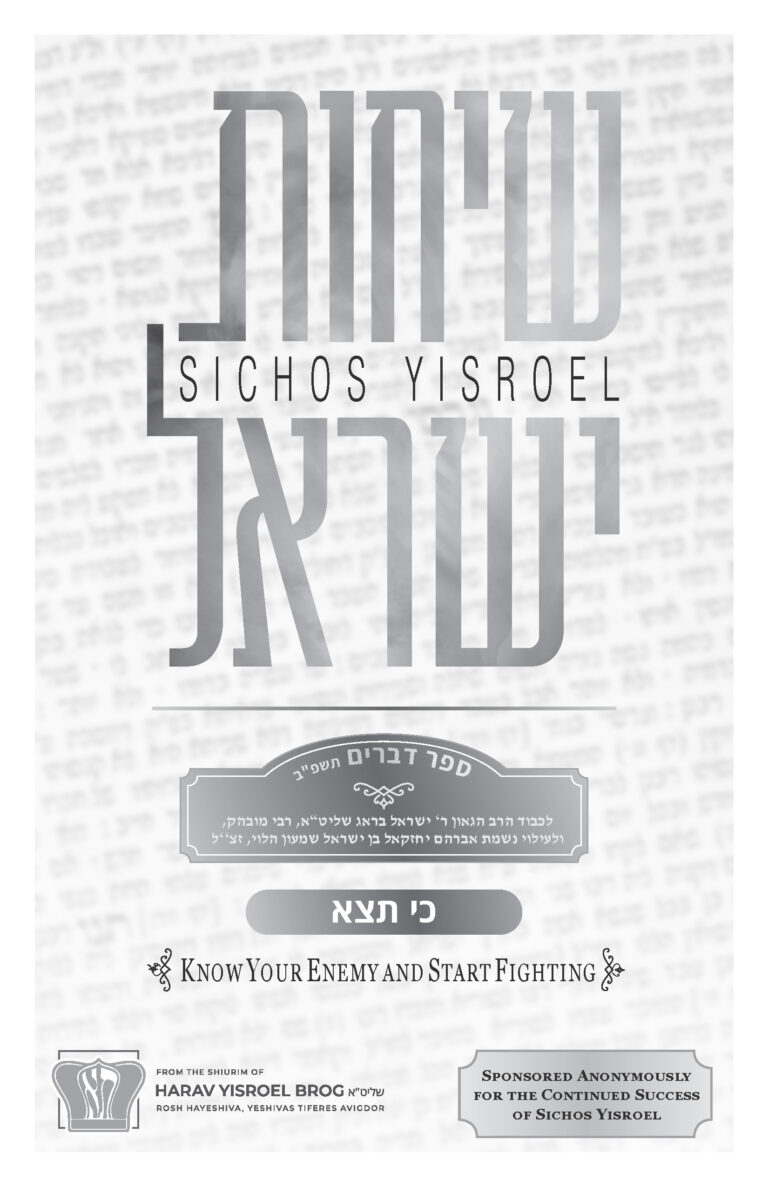
Ki Seitzei 5782 – Know Your Enemy and Start Fighting
The month of Elul is a month for introspection and becoming aware of what one’s challenges are in this world. Do you know what our biggest challenge is? The biggest challenge that everybody has in this world is the same one. I share the same challenge as all of you. We both share a common enemy, and that enemy’s name is yeitzer hara or as the chassidim say yaitzer hurah or as the Sefardim say yeitzer ha-rah. But whatever the name is, however you pronounce it, it’s all the same thing, it’s the same enemy.
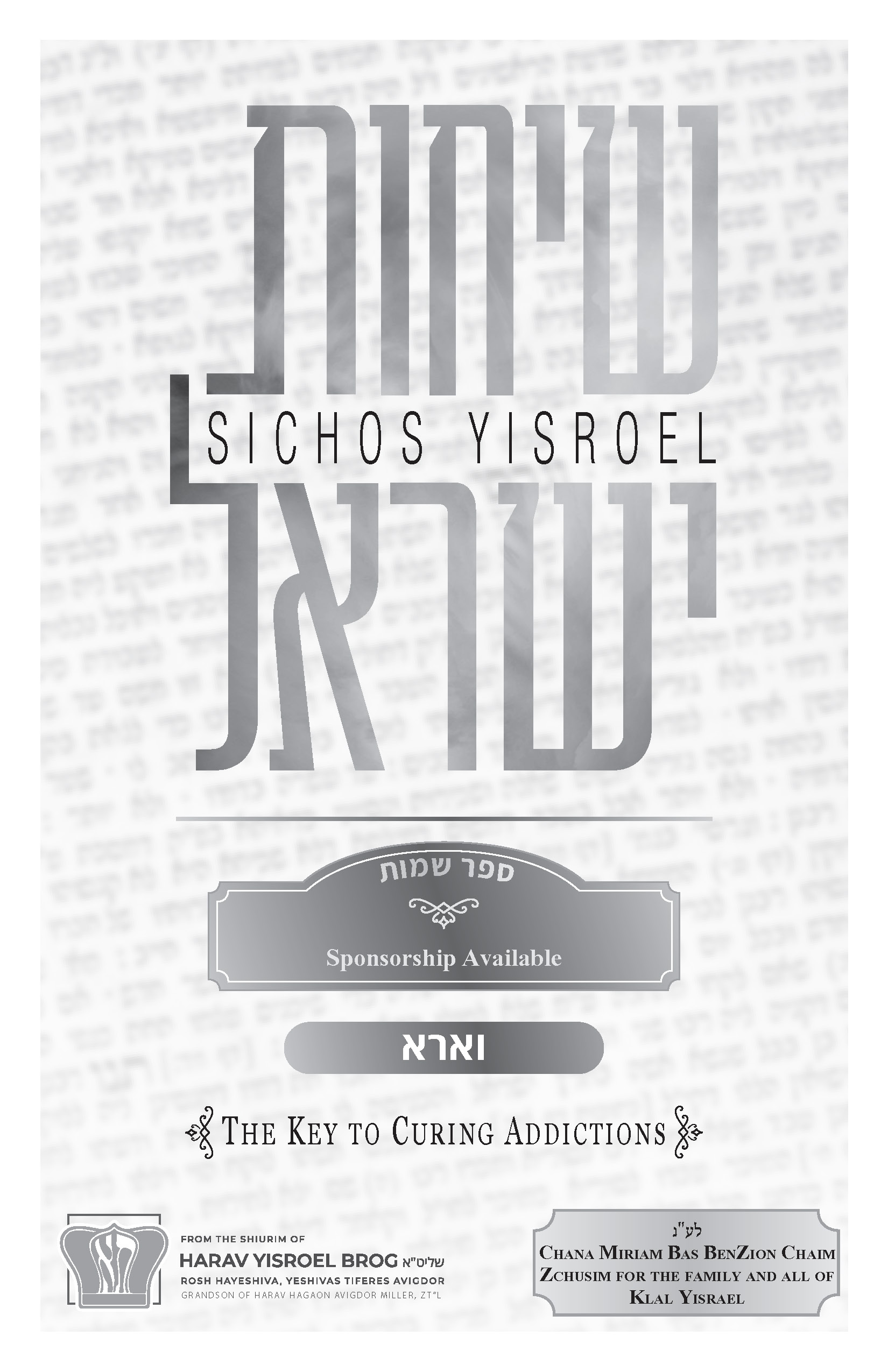
Vaera 5784: The Key to Curing Addictions
There is a fellow in Eretz Yisrael who is the editor of the Hebrew Yated Ne’eman. His name is Yisrael Friedman. He was extremely close with Rav Aharon Leib Shteinman. He was in his house many times. One day, eighteen years before Rav Aharon Leib was niftar, the phone rings by Yisrael Friedman. He picks up the phone – it’s the rosh yeshivah. Rav Aharon Leib is calling. Rav Aharon Leib tells him, “I have to speak to you right now…”